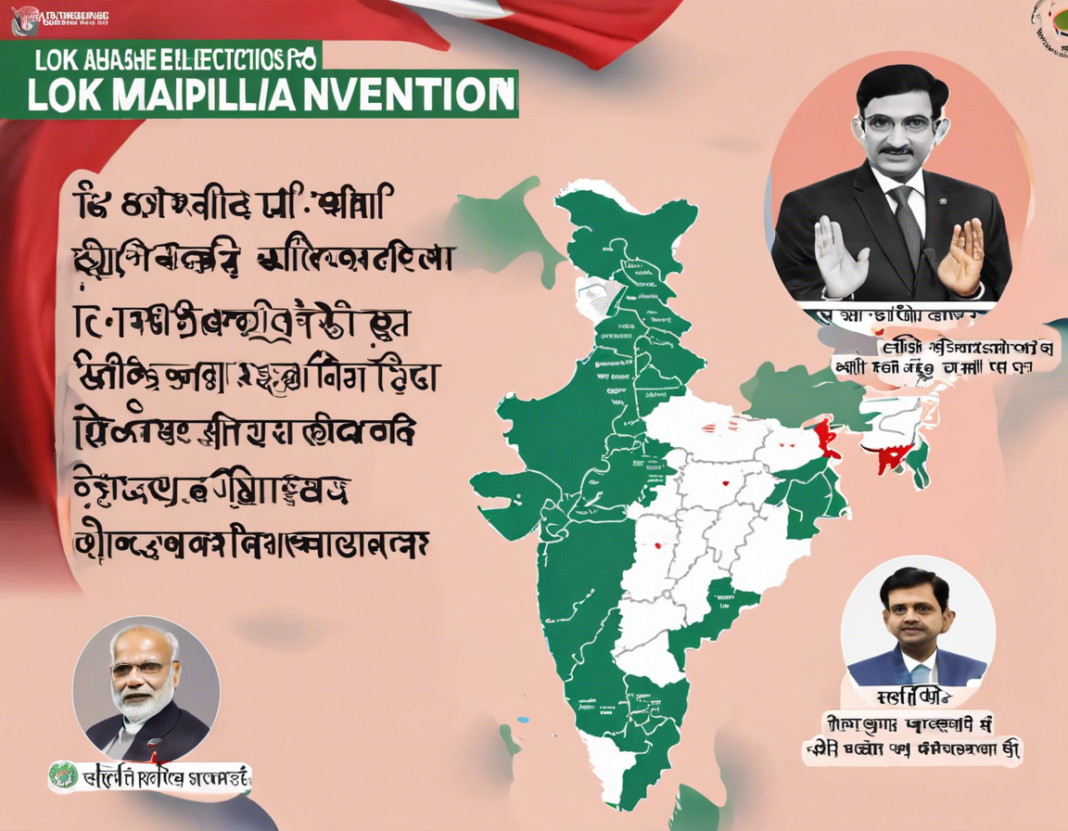The Lok Sabha Elections in India are always a significant event that captures the attention of the entire nation as well as the global community. With the country being the largest democracy in the world, the elections are a massive endeavor involving millions of voters, candidates, political parties, and election officials. The Lok Sabha Elections 2024 are particularly crucial as they will determine the direction of the country for the next five years. In this blog post, we will provide live updates on the ongoing Phase 3 of the elections, as well as insights into the process and significance of these elections.
Phase 3 of Lok Sabha Elections 2024: Live Updates
Key Information:
- Date: [date]
- States and Union Territories: [list of states/UTs]
- Number of Constituencies: [number]
Important Updates:
-
Voter Turnout: The voter turnout in Phase 3 is crucial in determining the overall participation of the electorate in these elections.
-
Key Contests: Highlighting the key constituencies where the competition is intense and closely watched by political analysts.
-
Election Violence: Any incidents of violence or malpractices reported during the polling day.
-
Prominent Candidates: Updates on prominent candidates contesting in Phase 3 and their performance in their respective constituencies.
Analysis and Insights:
-
The significance of Phase 3 in the overall electoral process.
-
Trends and patterns emerging from the voting patterns in this phase compared to previous elections.
-
Impact of regional parties and alliances in Phase 3.
-
Any specific issues or agendas dominating the campaigns in Phase 3.
Frequently Asked Questions (FAQs)
- What is the Lok Sabha Election?
-
The Lok Sabha Election is the process by which members of the Lok Sabha, the lower house of India’s Parliament, are elected by eligible voters.
-
How often are Lok Sabha Elections held?
-
Lok Sabha Elections are held every five years unless the government is dissolved prematurely.
-
How many phases are there in the Lok Sabha Elections?
-
The Lok Sabha Elections are usually conducted in multiple phases across several days to facilitate the smooth conduct of the electoral process. The number of phases can vary depending on the total number of constituencies and logistics.
-
What is the significance of Phase 3 in the Lok Sabha Elections?
-
Phase 3 of the Lok Sabha Elections typically covers a diverse range of states and constituencies, making it an essential phase in determining the overall electoral outcome.
-
How are winners determined in the Lok Sabha Elections?
-
The candidate who secures the highest number of votes in a constituency is declared the winner. This system is known as the First Past the Post (FPTP) system.
-
Are electronic voting machines (EVMs) used in the Lok Sabha Elections?
-
Yes, EVMs are widely used in Indian elections for their efficiency and transparency in the voting process.
-
What is the role of the Election Commission of India in the Lok Sabha Elections?
-
The Election Commission of India is responsible for overseeing the entire electoral process, ensuring free and fair elections are conducted.
-
Can Indian citizens living abroad vote in the Lok Sabha Elections?
-
Indian citizens residing abroad can vote in the Lok Sabha Elections through a process called postal ballot.
-
Why do Lok Sabha Elections in India attract such widespread attention?
-
The Lok Sabha Elections in India are significant due to the country’s size, diversity, and the impact they have on shaping the nation’s future policies and leadership.
-
What happens if no party wins a clear majority in the Lok Sabha Elections?
- In the event that no single party wins a clear majority, a coalition government is typically formed with alliances between different political parties to achieve a working majority in the Lok Sabha.

